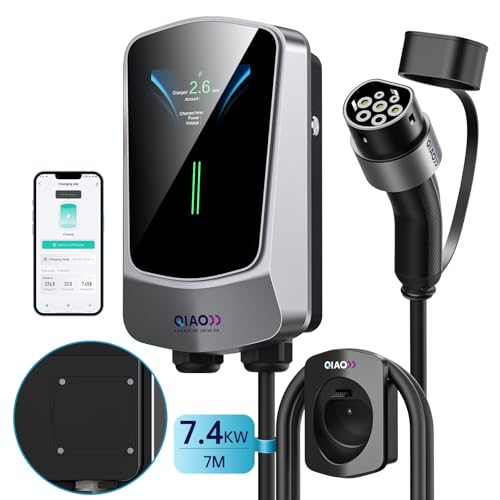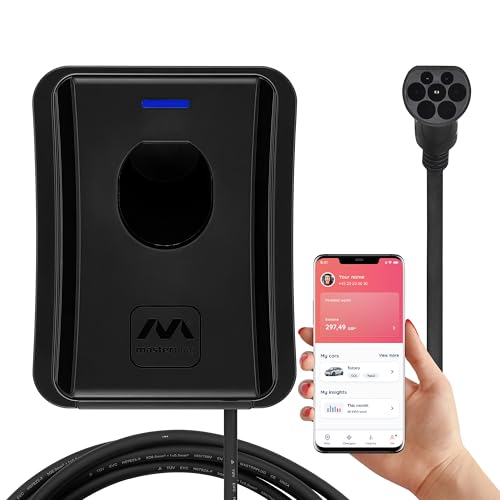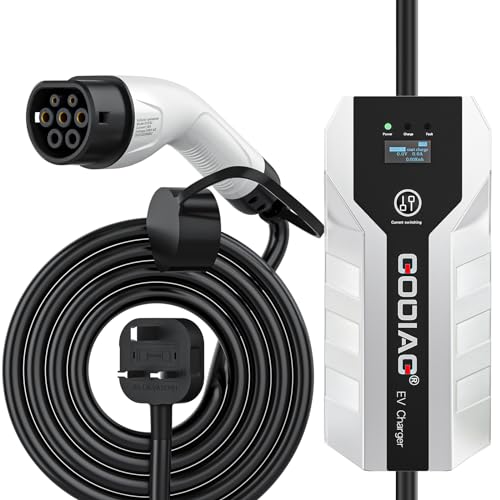Understanding EV Charging Stations: What They Are and How They Work
What is an EV Charging Station?
An EV charging station is a device that provides electrical power to recharge electric vehicles (EVs). Think of it as a fuel pump for electric cars, but instead of petrol or diesel, it supplies electricity. Just like traditional fuel pumps, EV charging stations come in different types and capabilities, allowing users to charge their vehicles at home, in commercial locations, or out on the road.
How Do EV Charging Stations Work?
Charging an electric vehicle is similar to charging any other electronic device. You simply connect your EV to the charging station through a cable. The station then transfers electricity into your vehicle’s battery. Depending on the type of charging station and the capacity of your car’s battery, this process can take anywhere from 30 minutes to several hours. The station communicates with the car to ensure safe and efficient charging, adjusting the flow of power based on the vehicle’s needs.
Choosing the Right EV Charging Station for Your Needs: Essential Features to Consider
Understanding Charging Speeds
When selecting an EV charging station, speed is one of the most crucial factors to consider. Charging stations are generally classified into three levels: Level 1, Level 2, and DC Fast Charging. Level 1 provides the slowest charge, typically using a standard 120-volt outlet. This is suitable for overnight charging. Level 2 uses a 240-volt outlet and charges much faster, making it ideal for home installations and public charging stations. DC Fast Charging is the quickest option, used primarily at commercial stations for rapid top-ups while on the go.
Connection Types and Compatibility
Another essential feature to think about is the connection type. Not all EVs use the same charging connector, so you want to ensure that the charging station you choose is compatible with your vehicle. Most commonly, there are Type 1 and Type 2 connectors, so check your car’s specifications before making a decision. Some stations even offer multiple connection types, making them versatile for different vehicles.
Smart Features and Connectivity
In today’s tech-savvy world, smart features can add significant value to your charging station. Look for options that include Wi-Fi connectivity, allowing you to monitor charging times and energy consumption remotely through an app. Some advanced models can also integrate with your home energy management systems, helping you optimise charging schedules to take advantage of lower energy rates.
Types of EV Charging Stations: Which One is Best for You?
Home Charging Stations
If you own an electric vehicle, a home charging station is a convenient option. These stations can be installed in your garage or on your driveway. A Level 2 home charging station is usually sufficient for overnight charging, ensuring your vehicle is ready for daily use. This solution is particularly beneficial for those who primarily charge at home and have easy access to a power supply.
Public Charging Stations
When you’re away from home, public charging stations become essential. These vary in speed and may be found in parking lots, shopping centres, and work locations. Researching local options can provide insight into which stations are available along your usual routes, making long-distance travel much easier. Mobile apps can help identify nearby public chargers, their availability, and estimated charging times.
Fast Charging Stations
For those who frequently undertake long journeys, DC fast charging stations are a must. These stations can charge an EV’s battery up to 80% in as little as 30 minutes. Typically located along major highways, they greatly reduce downtime during travel. While these stations are generally more expensive to use than standard chargers, they provide speed and convenience when time is of the essence.
Installation Tips for Your EV Charging Station: Getting Set Up Properly
Choosing the Right Location
When installing a home charging station, selecting the right location is vital. Ideally, it should be positioned close to where your vehicle is parked to limit the length of the charging cable. It’s also important to consider the space required for safe operation; avoid tight spots that can be difficult to access. Additionally, ensure the area is sheltered from harsh weather conditions for optimal longevity.
Hiring a Qualified Electrician
For any electrical work, it’s essential to rely on a qualified electrician to install your charging station. They will ensure that all installations comply with local regulations and safety standards. A professional installation not only guarantees safety but can also optimise the setup for efficiency, ensuring your station performs at its best.
Permits and Regulations
Before installation, check for any local permits or regulations that may apply. Different areas may have specific requirements regarding EV charging station installations, which can include safety measures or inspections. Being informed about these can save you time and potential complications down the road.
Cost Considerations for EV Charging Stations: What to Expect and How to Budget
Understanding the Initial Purchase Cost
The cost of an EV charging station varies greatly depending on the type, features, and brand. Basic Level 1 chargers can start as low as £300, while more advanced Level 2 and DC Fast Charging stations may cost upwards of £700 or more. When budgeting, consider the long-term savings on fuel costs and how quickly you intend to recoup your investment through convenient at-home charging.
Installation Expenses You May Encounter
Keep in mind that in addition to the purchase price of the charging station, installation costs may also apply. Expect to pay anywhere from £200 to £1,000 based on the complexity of the installation and any required electrical upgrades. Consulting with an electrician can provide a more accurate estimate based on your specific circumstances.
Long-term Operating Costs
Finally, factor in the operating costs of owning an EV charging station. Charging at home typically costs less than filling up a petrol tank, but this will depend on your local electricity rates. It’s wise to review your energy plan and consider whether time-of-use rates could provide additional savings by charging during off-peak hours.










